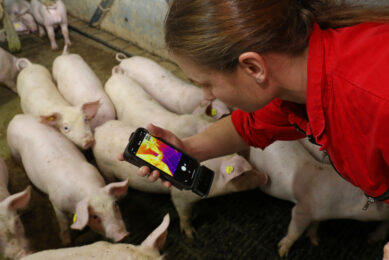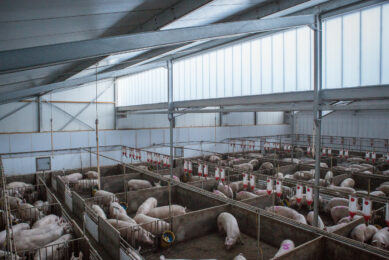The problem of protecting swine farmers through legislation

In the United States, so-called ‘ag-gag laws’ are the cause of controversy. Although intended to protect pig producers and other kinds of farmers, they don’t appear to make life easier for them. Pig welfare expert Monique Pairis-Garcia explains why.
In the United States, the release and dissemination of undercover footage depicting inappropriate handling and management of livestock animals has a significant impact on public perception of the agriculture industry.
Nearly 30 undercover videos on swine
Since 1998, nearly 30 undercover videos specific to the swine industry have been released from organisations such as Mercy for Animals, People for the Ethical Treatment of Animals (PETA) and Humane Society of the United States (HSUS).
These videos not only result in negative public perception regarding management practices on farm, but also in significant economic loss for the company due to costs associated with product recall, withdrawal of contracts by retailers, and firing, re-hiring and training of employees.
Legal protection for farmers
In the response to this poor representation of the agriculture industry, many states have countered undercover video footage through legal protection for farmers. These laws, more commonly referred to as ag-gag laws, provide legislation that:
- Prohibits either a person from entering a farm to take photo or video footage with intent to cause harm to that enterprise;
- Criminalises a person for providing false information on an employment application with the intent to record images.
The concept of such legislation is to provide a legal means for farmers to protect themselves from what many in the industry would view as biased representation. Since 2015, at least 16 states in the United States have introduced such laws and currently 8 states have this category of law in effect.
What is the effect of these laws for pig farmers?
So are these laws helping the farmer? From the agricultural community, these laws, are viewed, with mixed emotions. Some producers believe that ag-gag laws are a good idea while others believe that such laws create the misconception that producers are deliberately trying to hide what is on-farm.
To validate these concerns, a group of scientists from the University of British Columbia recently published a study to investigate this. A total of 716 individuals participated in the study and were presented with statements describing the benefits of ag-gag laws and statements or counterarguments on the harms of such laws.
Decrease in trust and more support for animal welfare
Overall, the study determined that most people were un-aware of ag-gag laws until participation in the study. Once they learned about ag-gag laws, most participants demonstrated a decrease in trust in farmers and an increase in support for animal welfare regulation.
These results suggest that even though the agricultural industry may view ag-gag laws as a means to protect the farmer from the consequences of undercover videos, implementing such laws in turn decreased trust in farmers and further increased the support for animal welfare regulation on-farm.











